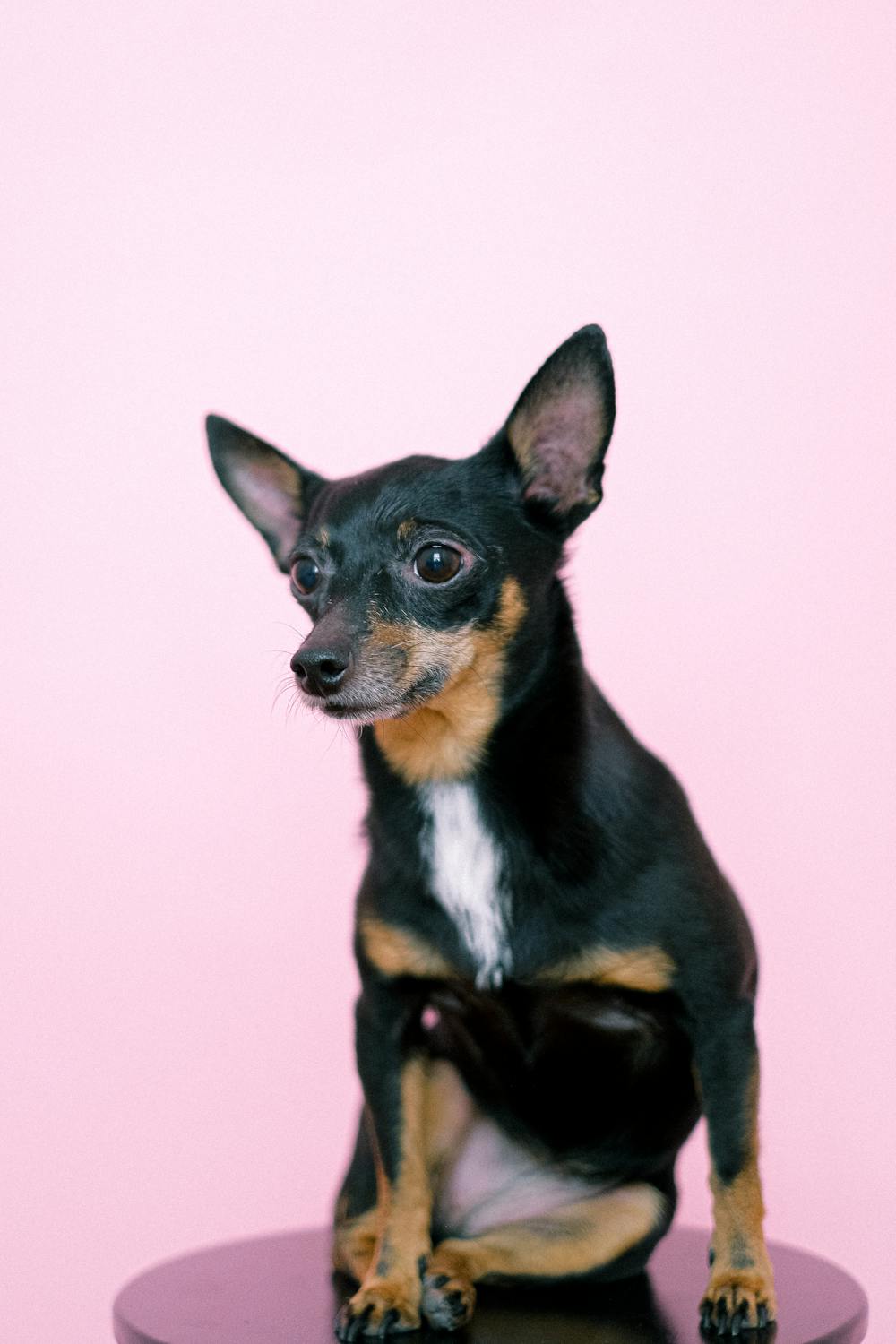

The Miniature Pinscher, also called Min Pins, originates from Germany. Bred to hunt vermin, this breed was created from a mix of the German Pinscher, Dachshund, and Italian Greyhound. These dogs are full of life and bear a prominent self-esteem and thrive in diverse family settings. The breed is normally quite popular and known for its exciting nature and loyalty to the owner. They have a few distinctive characteristics like its gait - walking "high-step," and a courage that exceeds its deficient technical dimension.
Exercise
Coat Type
Life Span
Grooming
Breed Group
Size
Miniature Pinschers are lively, energetic, and charming dogs. They are spirited, brave, and curious, often exploring their surroundings independently. They form strong bonds with their families and love spending time with them. Their high energy levels require daily exercise to release excess energy, and they thrive on play and activity. Miniature Pinschers can be stubborn, making training a bit challenging, but they respond well to positive reinforcement. They are highly protective and often bark to alert their owners of unfamiliar people or situations.
Miniature Pinschers require about 40 minutes to an hour of daily exercise, including walks, playtime, and agility training. They are intelligent but stubborn, so patience is key during training. Strong recall training is essential due to their high prey drive. Fun games like fetch or hide-and-seek provide both physical exercise and mental stimulation. Socialization with other dogs and humans is important to ensure they develop proper social skills.
Miniature Pinschers are prone to certain health issues:
Patellar Luxation: A condition where the kneecap dislocates, causing lameness.
Eye Problems: Including cataracts and progressive retinal atrophy. Regular vet checkups can help detect these issues early.
Allergies: Skin allergies are common and can be managed with proper diet and grooming.
Hip Dysplasia: Though less common in small breeds, it can still occur. Proper exercise and weight management can help prevent joint issues.
Miniature Pinschers have short, smooth coats that require minimal grooming. Weekly brushing is sufficient to remove loose hair. Bathing should only be done when necessary to preserve their skin's natural oils. Regularly check their ears for wax buildup and their eyes for discharge to prevent infections. Occasional teeth brushing is also recommended to maintain oral health.
Miniature Pinschers require a nutrient-dense diet to support their high energy levels. High-quality commercial dog food or vet-approved homemade diets are recommended. Adult Miniature Pinschers typically need 1-1.5 cups of food daily, divided into two meals. Puppies require more frequent feeding. Weight monitoring is crucial, as they can easily become overweight if overfed or under-exercised.